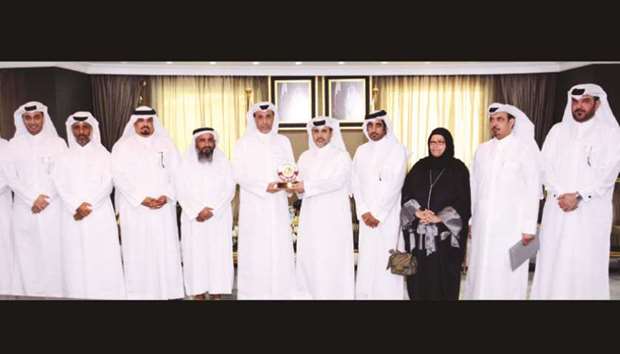The Doha Metro project of Qatar Rail is expected to have considerable positive environmental and economic benefits as it will reduce carbon emissions and the cost of traffic congestion on the road, the Central Municipal Council (CMC) was told yesterday.
Addressing the council at the latest updates of the project, Abdullah Abulaziz Turki al-Subaie, Qatar Rail CEO, pointed out that according to a study conducted in 2016, the cost of traffic congestion inside the city amounts to QR1.6bn a year.
Accordingly, the accomplishment of the metro project alongside other road and transport projects would resolve up to 50% of traffic congestion and save around QR3.3bn a year.
Within 20 years of introducing these projects, the total savings would amount to QR60bn, which would certainly benefit the national economy greatly.
In addition, the Doha Metro, when operational, would limit carbon emissions by 30%, besides saving time and efforts. He further affirmed the keenness of the government to provide the residents with safe, clean and cost effective means of transport.
Al-Subaie told the council that 90% of the first phase of the project was accomplished, including 37 metro stations with six stations above the ground and 31 underground working through three metro lines.
He pointed out that works on the project are going very well and more than 2,000 contracts were signed with different companies to accomplish the full project within the set time frame. He stressed that Qatar Rail applies the highest international safety and security standards in the field. The high cost for this alongside the salaries of employees and the operational costs would be covered from the income and revenues generated by the sale of tickets, advertisements, and the commercial outlets at the stations, which would amount to 400 shops.
In addition, the land plots over the metro projects would be developed to increase the revenues of the project and make it economically rewarding. The management of Qatar Rail is also working with the Ministry of Transport and Communications to provide a network of transportation within a radius of 3km of the metro stations.
There will be 35 additional trains with each of them having six carriages for the service of the 2022 FIFA World Cup fans. The metro stations also will have easy access for people with special needs with easy exits and entry access. Students will be given incentives to use the metro service as well as around 20,000 students of Qatar University who are expected to use it.
The council hosted al-Subaie yesterday at its bi-weekly regular session alongside a number of senior officials at Qatar Rail, to hear from them the latest updates of the project.

Qatar Rail’s al-Subaie and CMC chairman Mohamed Hammoud al-Shafi is flanked by CMC members and Qatar Rail officials at the council yesterday.
